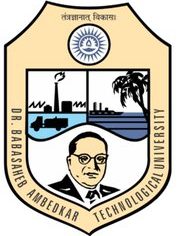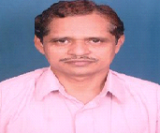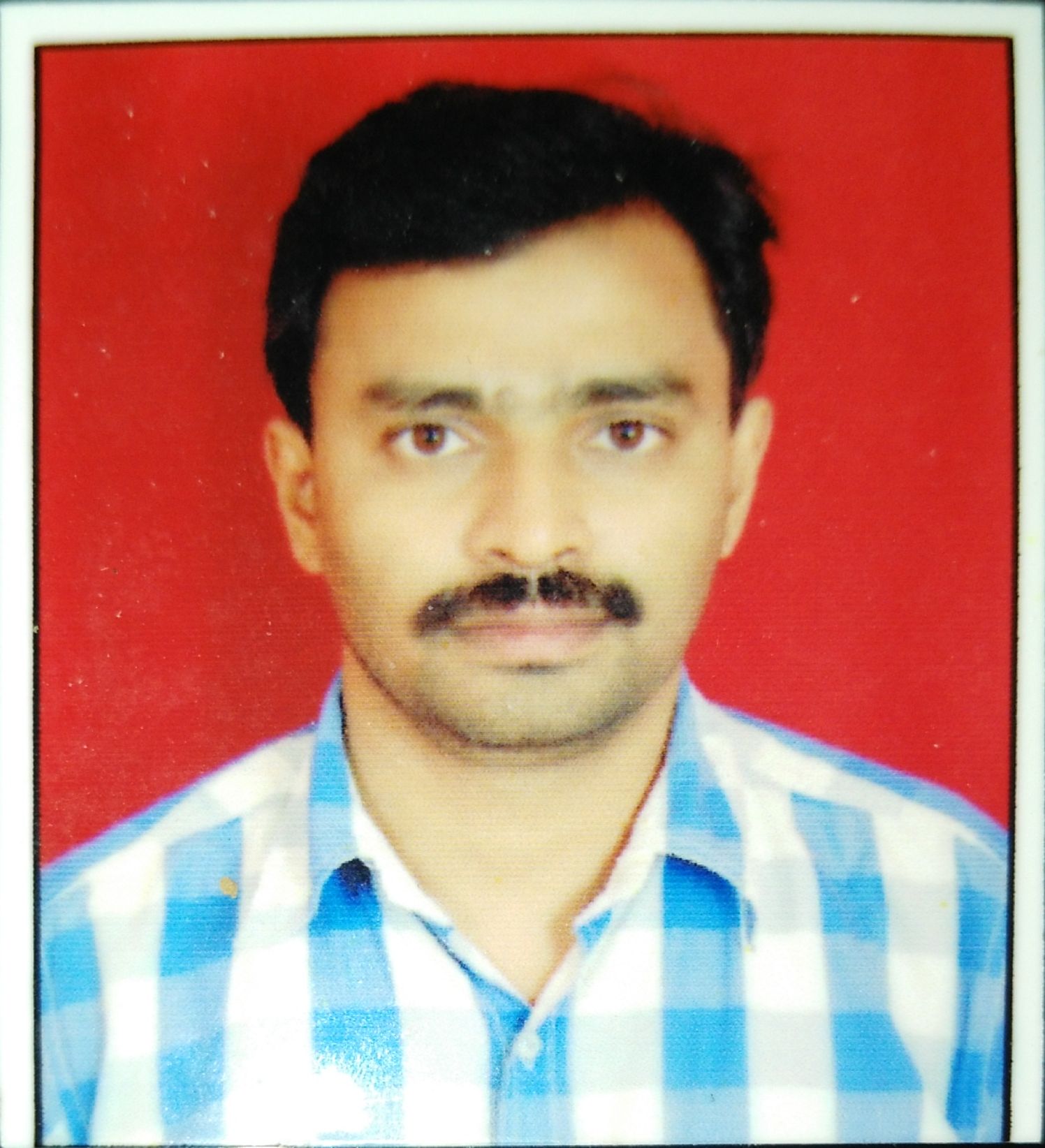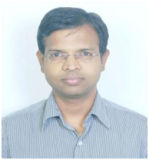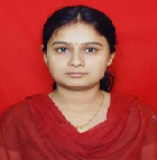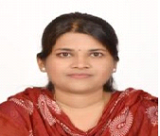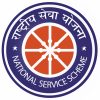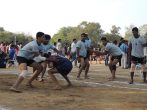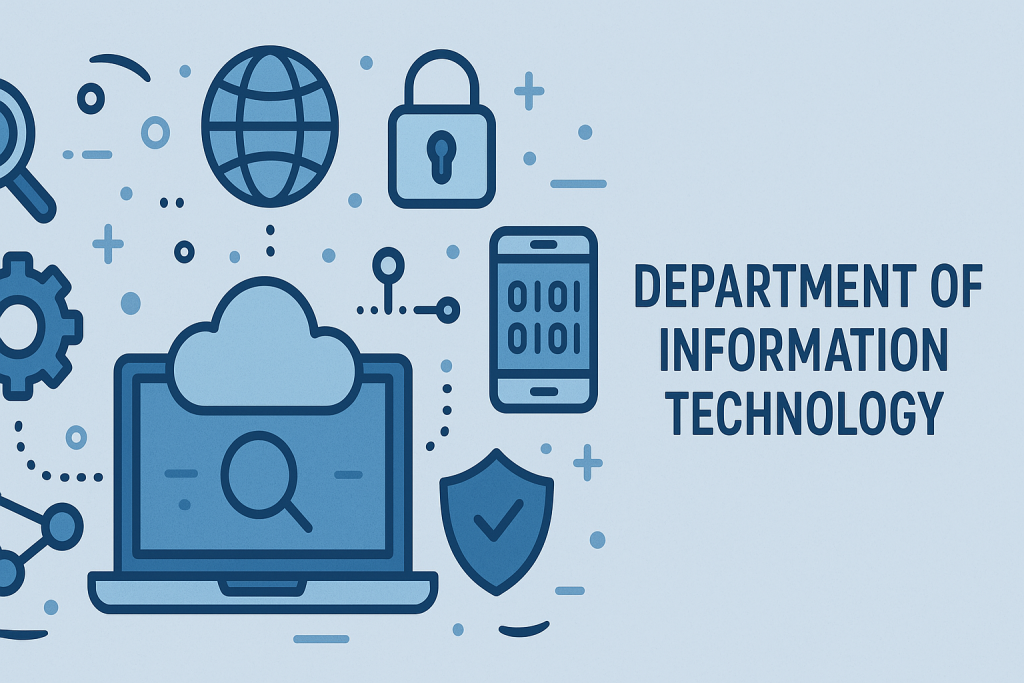
The department of Information Technology was established in the year 2001 with B. Tech. program having intake of 60 students under the umbrella of department of Computer Engineering. The B.Tech. programme in Information Technology was shifted to the newly created department in 2004. The first research scholar for Ph.D. programme enrolled in the department in 2015. Department has seven regular faculty, three laboratory supporting staff- Laboratory Assistant Technical, Laboratory Assistant and Laboratory Attendant. All the faculty members have completed their M.E. /M.Tech. Four faculty has completed PhD and one faculty members are pursuing their PhDs. The Department has set tradition of achievements in sports, cultural activities, extracurricular activities, competitive examinations like GATE, MBA-CET etc. and campus placements.
AI and ML Lab accommodates 15 students per setup and is equipped with 11 HP Pro Tower 400 G9 Desktop PCs (12th Generation, Intel i7), 3 HP 8300 SFF I7-3770/04/500 PCs, and software such as TensorFlow, Keras, scikit-learn, OpenCV, and Weka. It operates for 30 hours per week and is managed by Mr. D.V. Bhingare, an Instructor.
Programming Lab has a batch size of 20 students and includes 11 HP Pro Tower 400 G9 Desktop PCs (12th Generation, Intel i7) and 6 HP 8300 SFF I7-3770/04/500 PCs. It supports software like Eclipse, NetBeans, Python, and DrJava, and is utilized for 30 hours weekly. Mr. V.V. Rode, a Laboratory Assistant, oversees this lab.
Data Processing Lab, also for 20 students per setup, features 20 Dell Optiplex 7040 – SFF PCs (Intel i7 6700 3.4 GHz) and software such as MySQL, PostgreSQL, SQLite, MariaDB, Firebird, and R Studio. It is open for 30 hours each week and is managed by Mr. Abhijit Tembe, a Laboratory Assistant.
Cloud Computing and Networking Lab supports 20 students per batch with 20 All-in-One Desktops (7th Gen, Intel i5, 3.4 GHz) and tools like OpenStack, Kubernetes, Docker, VirtualBox, and Apache Cassandra. It is available for 30 hours per week under the supervision of Mr. Suhas Barhe, a Network Engineer.
Atal Tinkering Laboratory, designed for project purposes, accommodates 5 students per setup. It is equipped with various tools listed in Table B.6.1.1, operates for 20 hours weekly, and is managed by Mr. Ravi Hatkar, a Laboratory Attendant.
The equipment list includes various components essential for electronics and programming projects. Among the items listed, Arduino Uno units, with specifications such as the ATmega328P 8-Bit microcontroller, 5V power, 14 Digital IO, and 8 Analog IO, are available in a quantity of 30. Additionally, there are Arduino Nano units, with similar specifications, and Arduino Mega units, featuring the ATmega2560P microcontroller with more IO options. The Raspberry Pi 3 Model B+ comes with accessories like a 32 GB MicroSD card and various cables.
For prototyping, there are Breadboards in two sizes, 400 pin and 800 pin, and Proto shields. Other notable components include General Purpose Solderable Boards in two sizes, Berg Strips (both female and male), 16×2 LCD Displays, various USB Cables, and Rechargeable Batteries.
The list also features various sensor modules such as Water Pump Modules, Piezoelectric Plates, LED Matrix Modules, Bluetooth Modules, GSM Modules, GPS Modules, Laser Diode Emitters, LDR Modules, Keypads, Joysticks, and various types of Buzzers. There are Motor Driver Modules, Sound Playback Modules, DC Motors with Wheels, Node MCU units, WeMos D1 R2 units, Vibrating Motors, Alligator Connectors, Battery Clips with DC Jack, Hook-up Wires, and Jumper Cables.
The inventory also includes various LEDs, Timer-IC LM555, Atmega16u2 microcontrollers, Diode and Transistor Kits, Button Switch Sets, Capacitive Touch Modules and Switch Modules, IR Sensors, Triple Axis Magnetometers, Humidity Sensors, MQ Series Sensors, IR Transmitter/Receivers, Ultrasonic Sensors, Triple Axis Accelerometers, PIR Motion Detectors, Pulse Rate Heart Sensors, Relay Modules, Big Sound Microphone Modules, Soil Moisture Sensors, Touch Sensors, Metal Touch Sensor Modules, Rain Drop Sensors, Flex Sensors, Temperature Sensors, Digital Temperature Humidity Modules, Touch Switch Modules, Flame Sensors, and Rotary Encoders.
Program Outcomes (PO):
Engineering Graduates will be able to:
- Engineering Knowledge: Apply knowledge of mathematics, science, engineering fundamentals, and specialization to solve complex engineering problems.
- Problem Analysis: Identify, formulate, research literature, and analyze complex problems, reaching conclusions using first principles of mathematics, natural sciences, and engineering sciences.
- Design/Development of Solutions: Design solutions for complex problems and develop system components or processes with attention to public health, safety, and societal, cultural, and environmental considerations.
- Conduct Investigations: Use research-based methods, including experiments, data analysis, and synthesis of information, to provide valid conclusions.
- Modern Tool Usage: Create, select, and apply appropriate techniques, resources, and modern engineering and IT tools, including prediction and modeling, while understanding their limitations.
- The Engineer and Society: Apply contextual knowledge to assess societal, health, safety, legal, and cultural issues, and understand the responsibilities of professional engineering practice.
- Environment and Sustainability: Understand the impact of engineering solutions on societal and environmental contexts and demonstrate knowledge of sustainable development.
- Ethics: Apply ethical principles and commit to professional ethics, responsibilities, and norms of engineering practice.
- Individual and Team Work: Function effectively as an individual and as a member or leader in diverse teams and multidisciplinary settings.
- Communication: Communicate effectively on complex engineering activities, including writing reports, designing documentation, making presentations, and providing clear instructions.
- Project Management and Finance: Understand and apply engineering and management principles to manage projects and work effectively in teams and multidisciplinary environments.
- Life-long Learning: Recognize the need for, and have the ability to engage in independent and life-long learning in the context of technological change.
Program Specific Outcomes (PSO):
- Engineering Graduates will be able to:
- PSO1: Learn and apply modern skills, techniques, and engineering tools to automate things and simplify real world problems and human efforts.
- PSO2: Understand the state of the art development in IT to identify research gaps and hence provide solutions by new ideas and innovations.
The department ensures the upkeep and maintenance of various laboratories to facilitate the regular conduct of practical sessions in engineering skills. Timely maintenance of instruments, equipment, and machines is essential. To ensure this, a stock register is maintained in all laboratories, and audits are conducted annually by a stock verification committee to check the availability and functionality of equipment.
Mechanisms for Laboratory Maintenance and Ambiance:
- Regular Cleaning and Maintenance:
- The lab flooring and equipment are cleaned regularly.
- Proper records are kept for the repair and maintenance of lab instruments and equipment.
- Budget provisions are allocated for consumables and repairs, with cash available for minor fixes.
- Eatables are strictly prohibited inside the laboratory.
- Hard disk cleanup and defragmentation utilities are used regularly.
- Computers are checked for applications at the start of each semester.
- Training and Technical Support:
- Regular training is provided to laboratory technicians to enhance their skills.
- All labs are staffed with competent technical support available during working hours and beyond as needed.
- All the labs are under the charge of specific faculty members.
- Space and Environment:
- Laboratories comply with AICTE norms for space and are well-ventilated.
- They feature good quality flooring and ceiling.
- Ambient lighting is installed, and fans are used for air circulation.
- Air conditioning is provided in the AI and ML Lab to maintain a comfortable temperature.
- Seating and Facilities:
- Adequate seating arrangements are available for both students and staff.
- Blackboards/whiteboards are provided in each laboratory.
- Safety Measures:
- All equipment in the laboratories is grounded. All electrical equipment is protected against over-voltages and short-circuits using MCBs (Miniature Circuit Breakers).
- Do’s and Don’ts boards are installed at appropriate locations.
- Fire extinguishers are installed at strategic locations, maintained, checked periodically, and refilled as needed.
- Laboratories are equipped with proper signage for hazards, first aid kits, and emergency procedures.
- In the event of an emergency, a physician and a trained nurse are available on campus to attend to the medical needs of students and staff.
- Additional Facilities:
- Laboratories are accessible to students after working hours for lab/research work and projects.
- The department has sufficient labs to meet the curriculum requirements for all years on a timetable basis.
- Computer Centre for additional needs of the project/ Research.
- Generator is available during Power failure.
- Extra lab hours are provided for students if required.
- Projector and Television is available.
- Lab manuals and instruction materials are available for all labs.
Atal Tinkering Laboratory is exclusively used for Project. The laboratory is equipped with a diverse range of modules and sensors to facilitate various experiments and projects. These include the Motor Driver Module for controlling motors, the Sound Playback Module for audio applications, and the Capacitive Touch Module along with the Capacitive Touch Switch Module for touch-based interactions. For obstacle detection and environmental monitoring, the lab features the IR Sensor and Obstacle Avoider Sensor, as well as the Humidity Sensor and MQ Series Sensors for detecting gases. The Ultrasonic Sensor is used for distance measurement, while the PIR Motion Detector Module provides motion detection capabilities. The Pulse Rate Heart Sensor monitors heart rates, and the Relay Module is used for switching applications. Additionally, the Big Sound Microphone Module captures sound, and the Soil Moisture Sensor gauges soil moisture levels. The lab also includes the Touch Sensor and Metal Touch Sensor Module for various touch-based experiments, the Rain Drop Sensor for rain detection, and the Flex Sensor for measuring bending. Temperature and humidity are monitored using the Temperature Sensor and Digital Temperature Humidity Module, respectively. The Touch Switch Module and Flame Sensor provide touch-based control and fire detection capabilities. To support computing and connectivity, the lab is equipped with Arduino and Raspberry Pi 3 Model B+ boards, as well as Bluetooth Modules, GSM Module, and GPS Module for communication and location tracking.
Additionally, to support project work, funds for additional project equipment are available. Any funds required for project equipment are provided by the university on submitting an application by the project guide.
Final Year Students can use other labs in the department for their projects as a group of 3 to 4 students works on the assigned project, which could involve product design, specific equipment, or solving live industrial problems, and the knowledge gained from studying various subjects separately is used as a unified task. The project work involves implementing learned technology and includes experimental, theoretical, or computational work. All the laboratories are well-equipped with the necessary equipment for B.Tech projects. Each lab offers specialized tools and resources tailored to specific areas, providing support that helps students complete their projects and acquire technical skills relevant to their fields. The AI and ML Lab is dedicated to the development and application of artificial intelligence (AI) and machine learning (ML) techniques. It provides resources for projects involving neural networks, deep learning, natural language processing, computer vision, and data analysis. Students use frameworks such as TensorFlow, Keras, and scikit-learn to train and test AI models, gaining practical experience in designing intelligent systems and addressing complex problems. The Programming Lab offers a hands-on environment for various programming projects across languages such as Java, Python, C++, and more. Students engage in coding exercises, debugging, and software development tasks. The lab is equipped with integrated development environments (IDEs) like Eclipse, NetBeans, and Visual Studio Code, which support students in developing robust coding skills and effective problem-solving techniques. Each lab is designed to enhance the students’ learning experience and provide the necessary tools for their project success. Each lab is equipped with infrastructure, including good lighting and ventilation. They also have a reliable power supply, LAN/Wi-Fi connectivity, and adequate seating arrangements. Additionally, students can work on their projects beyond regular office hours.
Computer Centre for Project Work: There is a centralized facility available in the university where the students can do a part of their project work, if required. 10 PCs are available in the computer center specifically for project purposes. This facility is available during working hours. The facilities available in other departments (Electronics and Telecommunication, Computer Engineering) are also utilized and there is no restriction for that.
Literature Review and Plagiarism checking facility for projects in the laboratories: Students are expected to conduct necessary literature surveys by referring to current journals and IT reference books. E-books, e-journals (17893), Web of Science, ISID databases, M.Tech and PhD theses (366 Masters and 103 Doctoral), and faculty publications are made available and can be accessed directly from the labs. DrillBit-Extreme Plagiarism Detection Software through the Shodh Shuddhi consortium of INFLIBNET is also made available and can be accessed from the labs.
- Faculty Members Information
| Name of the Faculty Member | Qualification | Association with the Institution | Designation | Date on which Designated as Professor/ Associate Professor | Date of Joining the Institution | Department | Specialization | Academic Research | Currently Associated (Y/N) |
|---|---|---|---|---|---|---|---|---|---|
| Dr. S. M. Jadhav | Ph.D. | DBATU, Lonere | Professor | 11/03/2015 | 09/11/2004 | IT | Computer Engg | 41 | Y |
| Dr. S. R. Sutar | Ph.D. | SRTMU, Nanded | Professor | 24/06/2018 | 06/10/1997 | IT | Computer Engg | 23 | Y |
| Dr. V. J. Kadam | Ph.D. | DBATU, Lonere | Assistant Professor | -- | 21/08/2004 | IT | Computer Engg | 47 | Y |
| Prof. A. R. Babhulgaonkar | Ph.D. | DBATU, Lonere | Assistant Professor | -- | 11/08/2004 | IT | Computer Engg | 07 | Y |
| Prof. S. V. Bharad | M. Tech. Ph.D (Pursuing) | DBATU, Lonere | Assistant Professor | -- | 30/07/2007 | IT | Computer Engg | -- | Y |
| Prof. S. S. Barphe | M. Tech. Ph.D (Pursuing) | DBATU, Lonere | Assistant Professor | -- | 06/08/2007 | IT | Computer Engg | 04 | Y |
| Prof. S. R. Hivre | M. Tech. Ph.D (Pursuing) | DBATU, Lonere | Assistant Professor | -- | 27/07/2007 | IT | Computer Engg | -- | Y |
| Prof. P. P. Jadhav | M. Tech. Ph.D (Pursuing) | DBATU, Lonere | Assistant Professor | -- | 01/08/2023 | IT | Computer Engg | 04 | Y |
| Prof. E. G. Meshram | M. E. | Savitribai Phule Pune University | Assistant Professor | -- | 01/08/2023 | IT | Computer Engg | 04 | Y |
| Prof. S. K. Thakur | M. E. | -- | Assistant Professor | -- | 01/08/2023 | IT | Computer Engg | 01 | Y |
| Prof. K. R. Korpe | M. Tech. | DBATU, Lonere | Assistant Professor | -- | 01/08/2023 | IT | Computer Engg | -- | Y |
| Advisory Board | Board of Studies |
|---|---|
| DR. G. SIVAKUMAR IITB, MUMBAI | DR. S. M. JADHAV, CHAIRMAN, DR.BATU, LONERE |
| DR. B. B. MESHRAM VJTI, MUMBAI | Dr. S. R. SUTAR DR.BATU, LONERE |
| MR. SHAM DHAGE IBM, PUNE | DR. SHARVARI TAHMANE JNEC, AUGANGABAD |
| DR. V. P. SONAWANE DR.KALAM SKILL DEVELOPMENT CENTER JALGAON. | |
| PROF. D.V. BIRADAR M.S.BIDVE COE, LATUR |
The process of defining PEOs
The Program Educational Objectives (PEO) are the broad statements of the objectives for which the Program is run. These objectives should help in achieving the mission of the department. The graduates are expected to lead a useful and healthy life in the society. These objectives should be in line, to the extent possible, with the current state in the industries and research organizations. The industry needs are measured through the feedbacks, interactions, expert talks by industry people and recruiting industries’ communications with Training and Placement Office (TPO). Feedback of Alumni working in top industries and reputed institutes was also useful. The steps followed are as below:
- Based on the needs of the country, society, and industries, PEOs were formulated by the faculty members of the department through discussions.
- The PEOs were communicated to the stakeholders for their suggestions, if any.
- The PEOs were finalized.
Specific Educational Objectives
The following specific educational objectives aim to achieve these global and regional expectations. The following table shows the PEO identifiers and objectives.
| PEO IDENTIFIER | OBJECTIVES |
|---|---|
| PEO 01 | To enable graduates gain strong skills for employment in multidisciplinary domains driven by IT |
| PEO 02 | To enable graduates to pursue higher education and research |
| PEO 03 | To enable graduates to develop entrepreneurship and leadership skills |
| PEO 04 | To enable graduates to contribute to the society in accordance with the highest standards of ethics |
| PEO 05 | To develop breakthrough solutions enabling transformations in a rapidly changing IT world |
Major Strengths:
- Young and experienced faculty members
- Dedicated staff and faculty
- Campus-wide networking
- Latest Teaching/Learning aids like smart classroom
- Adequate infrastructure
Weaknesses:
- Lack of Ph.D. qualified faculty
- Shortage of faculty
- Higher faculty positions are vacant
Opportunities:
- Starting PG courses
- Starting finishing schools
- Establishment of Departmental library
- Training for New Technology awareness
- Consultancy like cyber crime detection
- Enrollment of faculty for Higher studies
Challenges:
- Curriculum development as per industrial needs
- Dynamic nature of IT field
- Training of faculty
- Research facilities
Short term
- Training of students in industry, Interaction with industry, Industry Defined Problems for final year projects, Conduction of Project competition, technical fair, Best idea generation competition, Training programme on soft skill development
- Skill Improvement and qualification improvement for faculty (Supporting faculty members for registering and completing their PhDs, Supporting faculty members to make proposals for financial assistance from Government agencies)
- Feedback from teachers, Program Evaluation from Employers and Alumni
- Creation of virtual classrooms, Creation of e-storage for providing NPTEL video lectures, video lectures of faculties, notes, assignments, e-book and similar e-contents.
- Networking with alumni
- Adopting SWAYAM platform in credit courses
- To create, maintain and develop a curricular data repository for the students
3 Years
- Entrepreneurship and Innovation Cell, Grievance Redressal Cell
- Deployment of Moodle as a Learning Management System, Modernization of all classrooms for e-content delivery mode
- New Courses (M.Tech. in Information Technology)
- Faculty Training in Industry, Time Management/Stress management programs for faculty and students
- Finishing School Programmes (MoU with Training academics like Cisco, Microsoft and Redhat)
- Deployment and testing various question paper generation algorithms
- Accreditation- NAAC/NBA and NIRF ranking
Academic Year 2023-2024
Academic Year 2022-2023
- UG Sem. VI & VIII
- UG Sem. IV
- A Semester- II
- Direct Second Year Semester-III
- B.Tech/M.Tech (odd Semester)
Academic Year 2021-2022
- Second Year Even Semester S. Y. Engineering
- FY of UG Programs of all Engineering Disciplines
- Even Semester UG/PG
- Even Semester UG/PG
- Direct Second Year and First Year Engineering
- Odd Semester
Academic Year 2020-2021
Academic Year 2019-2020
Academic Year 2018-2019
| Roll No. | Name | Thesis Topic | Guide |
|---|---|---|---|
| RS20161101 | Dr. Vinod Jagannath Kadam | Medical Decision Support Systems for Breast Cancer Diagnosis using Ensemble and Deep Learning | Dr. Shivajirao M. Jadhav |
| RS20151101 | Dr. Samir Shrihari Yadav | Machine Learning Based Disease Diagnosis using Clinical Findings | Dr. Shivajirao M. Jadhav |
| Sr.No. | Roll No. | Name | Research Topic | Guide |
|---|---|---|---|---|
| 1 | RS20161102 | Mr. Pankaj Eknath Kasar | MRI Modality Based Medical Disease Diagnosis using Machine Learning Techniques. | Dr. Shivajirao M. Jadhav |
| 2 | RS20161103 | Mrs. Mahi Khemchandani | Machine Learning based Segmentation and Brain Tumor Identification Using Multi Modal MR Images | Dr. Shivajirao M. Jadhav |
| 3 | RS20181103 | Mr. Jayanand Ambadas Kamble | Reinforcement Learning in Healthcare | Dr. Shivajirao M. Jadhav |
| 4 | RS20181101 | Mr. R. R. Kotkondawar | Applications of ML in Healthcare | Dr. Sanjay R Sutar |
| 5 | RS20181102 | Mr. Subhash Vitthal Pingale | Design and Analysis of contemporary Neural Architectures for network intrusion detection system | Dr. Sanjay R. Sutar (Presynopsis date 28/04/2023) |
| 6 | RS20181104 | Mrs. Nanda R Wagh | Application of Machine Learning for Women and Children Safety | Dr. Sanjay R Sutar |
| 7 | RS20191101 | Mrs. Pranita Pradip Jadhav | Machine Learning in Education | Dr. Shivajirao M. Jadhav |
| 8 | RS20191102 | Mrs. Sapna Shivaji Barphe | Software Education | Dr. Sanjay R Sutar |
| 9 | RS20191103 | Mr. Dinesh Achyut Zende | Artificial intelligence in agriculture | Dr. Sanjay R Sutar |
| S. S. Yadav, V. J. Kadam, S. M. Jadhav, S. Jagtap and P. R. Pathak, Machine Learning based Malaria Prediction using Clinical Findings, 2021 International Conference on Emerging Smart Computing and Informatics (ESCI), 2021, pp. 216-222, doi: 10.1109/ESCI50559.2021.9396850.(Publisher:IEEE) |
| Williamson, S., Vijayakumar, K. & Kadam, V.J. Predicting breast cancer biopsy outcomes from BI-RADS findings using random forests with chi-square and MI features.Multimed Tools Appl(2021).https://doi.org/10.1007/s11042-021-11114-5Publisher: (Springer).Indexed in [SCI & Scopus] |
| Vijayakumar K, Kadam VJ, Sharma SK. Breast cancer diagnosis using multiple activation deep neural network.Concurrent Engineering. June 2021. doi:10.1177/1063293X211025105Publisher: (Sage).Indexed in [SCI & Scopus] |
| S. S. Yadav, S. More, S. M. Jadahv , S. R. Sutar, Convolutional Neural Networks Based Diagnosis of Myocardial Infarction in Electrocardiograms Date of Conference:19-20 Feb. 2021, DOI:10.1109/ICCCIS51004.2021.9397193, Publisher:IEEE |
| S. S. Yadav, S. R. Sutar, Alzheimer’s Disease Diagnosis using Structural MRI and Machine Learning Techniquesâ€, International Conference on Machine Vision and Augmented Intelligence , (MAI- 2021, Springer) , IIITDM, Jabalpur, February, 2021 |
| S. S. Yadav, S. B. More, S. M. Jadhav, S. R. Sutar, Convolutional Neural Networks Based Diagnosis of Myocardial Infarction in Electrocardiogramsâ€, IEEE co-sponsored International Conference on Computing, Communication, and Intelligent Systems, (IEEE Xplore), 19-21 February, 2021, Sharda University, Noida |
| V. T. Lokare , A. W. Kiwelekar, S. S. Barphe, L. D. Netak, “Increasing Students Engagement during Virtual Classroom Teaching through Effective use of Online Tools”, 8th International Conference on Transformations in Engineering Education, Hydrabad on 7th January 2021. |
| Yadav S., Kadam V., Jadhav S. (2021) Machine Learning Algorithms for the Diagnosis of Cardiac Arrhythmia in IoT Environment. In: Santosh K.C., Gawali B. (eds) Recent Trends in Image Processing and Pattern Recognition. RTIP2R 2020. Communications in Computer and Information Science, vol 1381. Publisher: (Springer). |
| S. S. Barphe , V. T. Lokare, A. W. Kiwelekar,S. R. Sutar,Effective Online Tools for Teaching Java Programming Course on an Online Platform”, 5th World Conference on Smart Trends in Systems, Security and Sustainability (WorldS4 2021), London, UK on 29th – 30th July 2021. |
| S. S. Yadav, S. M. Jadahv, S. Nagrale, N. Patil, Application of Machine Learning for the Detection of Heart Diseaseâ€DOI:10.1109/ICIMIA48430.2020.9074954, Conference Location:Bangalore, India, Date Added to IEEEXplore:23 April 2020 |
| S. S. Yadav, S. M. Jadahv , R. Bonde, S. Chaudhari, Automated Cardiac Disease Diagnosis Using Support Vector Machine Date of Conference:3-4 April 2020 , Publisher, CSCITA, DOI:10.1109/CSCITA47329.2020.9137817 |
| S.V.Pingale, S. R. Sutar, Analysis of Web Application Firewalls, Challenges, and Research Opportunities, International Conference on Data Sciences, Machine Learning and Applications, ICDSMLA (Springer), Pune, December, 2020 |
| Kadam V. J., Jadhav S. M. (2020), Performance analysis of hyperparameter optimization methods for ensemble learning with small and medium-sized medical datasets,Journal of Discrete Mathematical Sciences and Cryptography, Volume 23, Issue 1, pages 115-123, ISSN: Print 0972-0529 Online 2169-0065, DOI:10. 1080/09720529. 2020. 1721871, Publisher: (Taylor & Francis), Indexed in: [ESCI & Scopus] |
| Kadam V. J., Yadav S. S., Jadhav S. M. (2020), Soft-Margin SVM Incorporating Feature Selection Using Improved Elitist GA for arrhythmia Classification,In Abraham A., Cherukuri A., Melin P., Gandhi N. (eds) Intelligent Systems Design and Applications. ISDA 2018, Advances in Intelligent Systems and Computing, Volume 941, pages 965-976, ISBN: Print 978-3-030-16659-5 Online 978-3-030-16660-1, Series ISSN: Print 2194-5357 Online 2194-5365, DOI: 10. 1007/978-3-030-16660-1_94, Publisher: (Springer), Cham, Indexed in: [ Scopus] |
| Vinod Kadam, Shivajirao Jadhav, Mahesh Shirsath, Atharv Kurdukar (2020),Parkinson’s disease prediction using a stacked generalization ensemble of kNN and its variants with mRMR feature selection,S. D. Purohit et al. (eds),Proceedings of International Conference on Communication and Computational Technologies, Algorithms for Intelligent Systems, Chapter no. 39, DOI: 10. 1007/978-981-15-5077-5_39, Publisher: (Springer). |
| Yadav S. S., Kadam V. J., Jadhav S. M. (2020), Comparative Analysis of Ensemble Classifier and Single Base Classifier in Medical Disease Diagnosis,In: Bansal J., Gupta M., Sharma H., Agarwal B. (eds) Communication and Intelligent Systems. ICCIS 2019, Lecture Notes in Networks and Systems, Volume 120, ISBN: Print 978-981-15-3324-2 Online 978-981-15-3325-9, DOI: 10.1007/978-981-15-3325- 9_37, Publisher: (Springer), Singapore. |
| Kadam, Vinod, Shivajirao Jadhav, Samir Yadav (2020), Bagging based ensemble of support vector machines with improved elitist GA-SVM features selection for cardiac arrhythmia classification,International Journal of Hybrid Intelligent Systems, Volume 16, Issue 1, pages 25-33, ISSN: Print 1448-5869 Online 1875-8819, DOI: 10. 3233/HIS-190276, Publisher: (IOS Press) |
| V. J. Kadam, S. M. Jadhav, A. A. Kurdukar and M. R. Shirsath, Arrhythmia Classification using Feature Ensemble Learning based on Stacked Sparse Autoencoders with GA-SVM Guided Features, 2020 International Conference on Industry 4.0 Technology (I4Tech), Pune, India, 2020, pp. 94-99, doi: 10.1109/I4Tech48345.2020.9102675. (Publisher:IEEE) |
| Kadam Vinod, Thematic Issue Intelligent Data Mining for Data Analysis and Knowledge Discoveryâ€, Recent Advances in Computer Science and Communications (Formerly: Recent Patents on Computer Science), Volume 13, Number 3, 2020, pp. 433-434(2) DOI: https://doi.org/10.2174/266625581303200609114251 Publisher:Bentham Science Publishers |
| A. R. Babhulgaonkar ,S. Sonavane , International Conference on Machine Intelligence & Smart Computing (ICMISC-2020) organized by Government College of Engineering, Karad 21-22 May, 2020 Published in Solid State Technology Journal Vol. 63 No. 2 (2020) ISSN 0038-111X |
| Kadam V. J., Jadhav Shivajirao M., K. Vijayakumar (2019), Breast cancer Diagnosis Using Feature Ensemble Learning Based on Stacked Sparse Autoencoders and Softmax Regression,Journal of Medical Systems Volume 43, Issue 8, Article number 263, ISSN: Print 0148-5598 Online 1573-689X, DOI: 10. 1007/s10916-019-1397-z, Publisher: (Springer), Indexed in [SCI & Scopus] |
| Kadam V.J., Jadhav S.M. (2019) Feature Ensemble Learning Based on Sparse Autoencoders for Diagnosis of Parkinson’s Disease. Computing, Communication and Signal Processing. Advances in Intelligent Systems and Computing, vol 810.(Springer, Singapore) |
| Kadam V. J., Jadhav Shivajirao M. (2019), Optimal weighted feature vector and deep belief network for medical data classification,International Journal of Wavelets, Multiresolution and Information Processing, Volume 18, Issue 2, pages 2050006, ISSN: Print 0219-6913 online 1793-690X, DOI: 1142/S021969132050006X, Publisher: (World Scientific), Indexed in [SCI & Scopus] |
| Yadav, S.S., Jadhav, S.M. Deep convolutional neural network based medical image classification for disease diagnosis.J Big Data6,113 (2019). https://doi.org/10.1186/s40537-019-0276-2 |
| Kadam V. J., Jadhav S. M. (2019), Feature Ensemble Learning Based on Sparse Autoencoders for Diagnosis of Parkinson’s Disease,In Iyer B., Nalbalwar S., Pathak N. (eds) Computing, Communication, and Signal Processing, Advances in Intelligent Systems and Computing, Volume 810, pages 567-581, ISBN: Print 978-981-13-1512-1 Online 978-981-13-1513-8, Series ISSN: Print 2194-5357 Online 2194-5365, DOI: 10. 1007/978-981-13-1513-58, Publisher: (Springer), Singapore, Indexed in: [ Scopus] |
| A. R. Babhulgaonkar ,S. Sonavane , International Journal of Computer Sciences and Engineering (IJCSE), UGC Listed, Special Issue-1, pp. 48-54, Feb 2018 E-ISSN: 2347-2693 https://doi.org/10.26438/ijcse/ v6si1.1925 |
| S. M. Jadhav, S. L. Nalbalwar, Ashok Ghatol, Artificial Neural Network based cardiac arrhythmia classification using ECG signal dataINSPEC Accession Number:11515363 DOI:10.1109/ICEIE.2010.5559887 Publisher IEEE |
| S. M. Jadhav, S. L. Nalbalwar, Ashok Ghatol Generalized Feed forward Neural Network based cardiac arrhythmia classification from ECG signal data ,date Added to IEEEXplore:14 February 2011, ISBN Information:, INSPEC Accession Number:11824149, Publisher:IEEE |
| Kadam V.J., Yadav S.S., Jadhav S.M., Soft-Margin SVM Incorporating Feature Selection Using Improved Elitist GA for Arrhythmia Classification. Intelligent Systems Design and Applications. Advances in Intelligent Systems and Computing, vol 941. (Springer, Cham) |
| A. R. Babhulgaonkar ,S. Sonavane, National Level Research Symposium on Computing – RSC 2016 organized by dept. of CSE & IT under ACM chapter at WCE Sangli |
| A. R. Babhulgaonkar ,S. Sonavane , Published in International Advances in Intelligent Systems and Computing (AISC) ISBN 978-981-32-9515-5 https://doi.org/10.1007/978- 981-32-9515-5_50 |
| A. R. Babhulgaonkar ,S. Sonavane , International Journal of Future Generation Communication and Networking (IJFGCN) ISSN: 2233-7857 IJFGCN https://sersc.org/journals/ index.php/IJFGCN/article/view/ 27005/14749 |
| A. R. Babhulgaonkar ,S. Sonavane , Published in International Advances in Intelligent Systems and Computing (AISC) ISBN: 978-981-15-4851-2 https://doi.org/10.1007/978- 981-15-4851-2_31 |
| A. R. Babhulgaonkar ,S. Sonavane , International Journal of Information Technology (IJIT) ISSN 2511-2104 DOI:10.1007/s41870-020- 00503-y |
| Bharad S. V., Statistical Machine Translation: Foundation, Challenges and Recent advancesâ€, International coference on Intelligent systems & Information Management, October 2017. |
| Bharad S. V., Prediction of carrier status of students using ID3 algorithmâ€, International conference on Reliability, Infocom Technologies and Optimization, January 2013. |
| Kasar, Pankaj Eknath, Shivajirao M. Jadhav, and Vineet Kansal. “Brain Tumor Segmentation using UNET and SEGNET: a Comparative Study.” (2022). |
| Sharma, S.K., Vijayakumar, K., Kadam, V.J. et al. Breast cancer prediction from microRNA profiling using random subspace ensemble of LDA classifiers via Bayesian optimization. Multimed Tools Appl (2022). https://doi.org/10.1007/s11042-021-11653-x |
| Empirical Analysis of Phrase-Based Statistical Machine Translation System for English to Hindi Language Arun Babhulgaonkar (1Department of Information Technology, Dr. Babasaheb Ambedkar Technological University, Lonere, Raigad, Maharashtra, India) and Shefali Sonavane (2Department of Information Technology, Walchand College of Engineering, Sangli, Maharashtra, India) Vietnam Journal of Computer Science 2022 09:02, 135-162 |
- Mr. S.M. Barhe – Network Engineer
- Mr. Dilip V. Bhingare – Instructor
- Mr. Vikas V. Rode – Lab Assistant
- Mr. Ravindra B. Hatkar – Lab Attendant
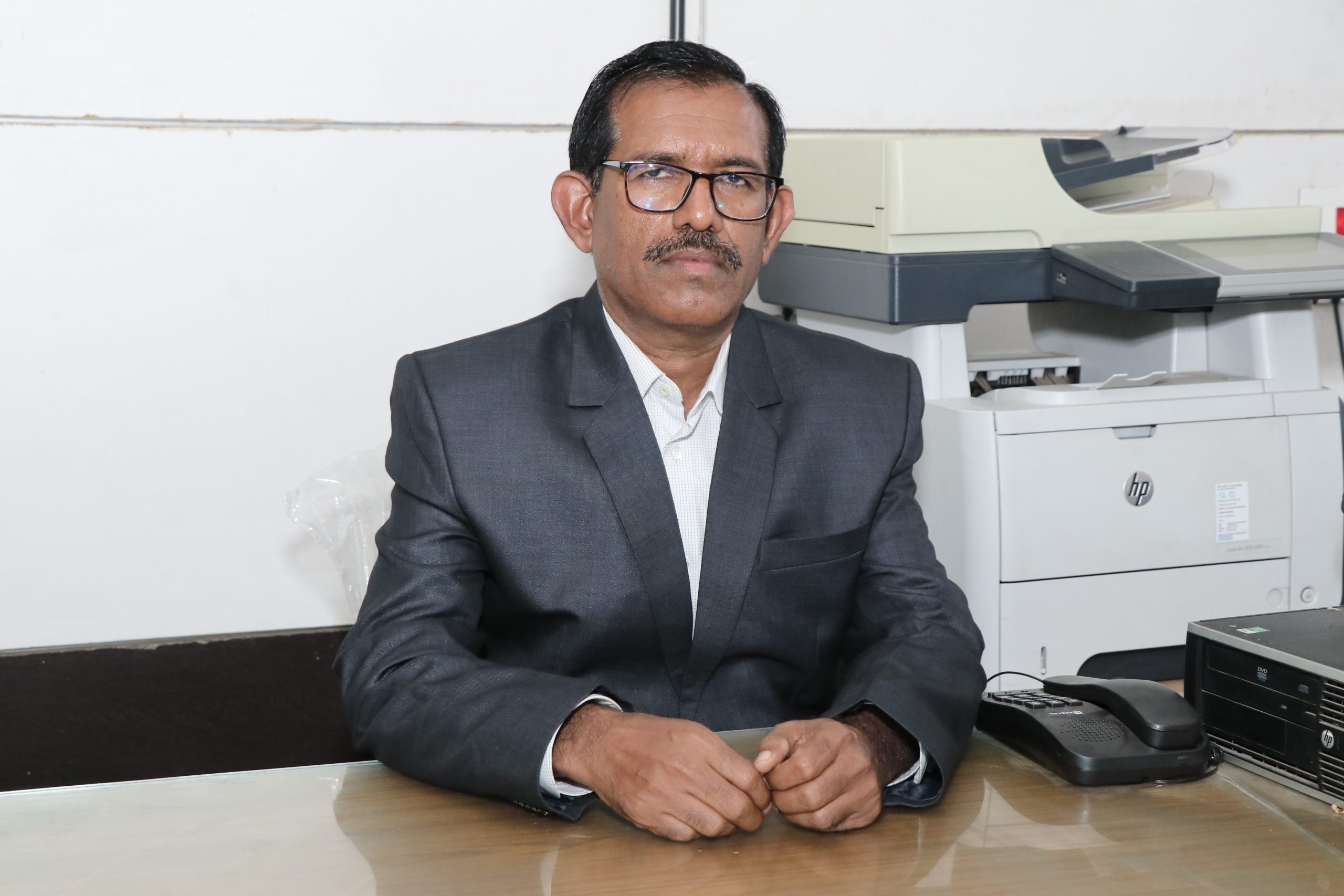
Dr. S. M. jadhav,
Professor & HeadWelcome to the Department of Information Technology. It is my pleasure to introduce the Department of Information Technology at the main campus of Dr. Babasaheb Ambedkar Technological University, Lonere. The Department of Information Technology has recorded consistent improvement in its academic, research and placement performance. It offers a range of innovatively designed programs whose curricula are constantly updated to meet the changing requirement of the industry and also to meet the needs of major stakeholders. To fulfill industry demand we introduced five Add-on courses which is supposed to be teach by adjunct faculty from reputed industry. Department offers opportunities for pursuing advanced research in Information technology to motivated and talented students with a keen sense of scientific inquiry. Eight Research students are enrolled for Phd programme which contributes to the large research group on the campus which is our major achivement. We believe that our students have been well accepted in their job profiles and have consistently exceeded expectations of the corporate world. During study at the department, the students are encouraged to get hands-on experience in the corporate world through internship projects with reputed organizations. They also undertake projects benefiting local industries or dealing with local problems. These projects enable them to understand the relevance of working in a group and also help them to realize the finer aspects and importance of teamwork. Last year we created fun learning environment to have smart class room and modern technology that eases the learning process for all students. We also encourage students to participate, organise Technical events , and also get involved in activities of social relevance. With all these inputs one finds our students hardworking, practical-oriented and effective in any work environment. We have designed our syllabus to strike a balance between professional knowledge and personal skills. We are confident that our current curriculum has enabled overall development of budding managers to come up to the expectations of the corporate world. The curriculum is taught by a distinguished faculty combining academic excellence and real world experience with dedication and commitment. We are encouraged to see many industries coming back to our department, which reinforces our belief in the effectiveness of our curriculum and its suitability to the dynamic corporate world. With this brief , I welcome you to be a part of our journey towards being a world class centre of excellence in education, training and research. Last but not least, we must not forget that while living professional life we should hold high moral and ethical values. I welcome you all and wish bright and successful career ahead.
